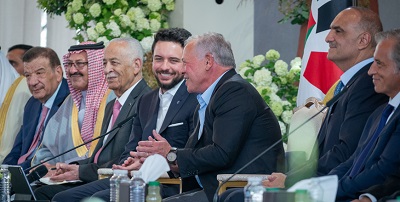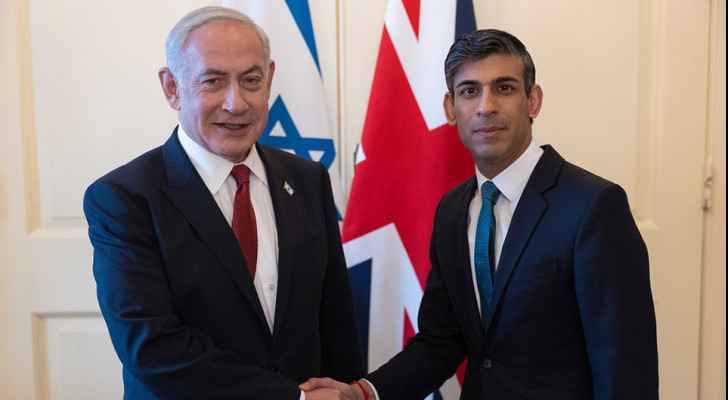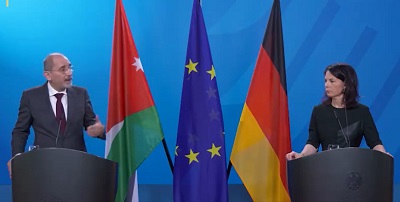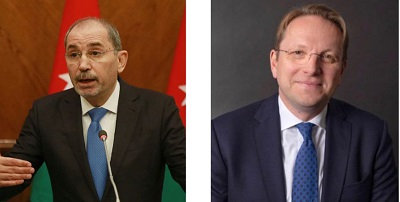The Gulf and Iran: Realistic dialogue or necessary struggle? - By Turki Aldakhil, Al Sharq al-Awsat
It’s indisputable that political negotiations and dialogue among countries are an essential part of diplomatic work. Policies and agreements are the product of discussions and the result of sitting together and reaching understandings. However, the problem is not in the compliance of dialogue as a value among the different countries but it’s whether dialogue is part of the political approach adopted by the other camp.
The message of Kuwait’s emir to Iran, which the country’s Foreign Minister Sheikh Sabah al-Khaled delivered, tackles dialogue and relations between Gulf countries and Iran. The letter was full of wisdom and had a clear message.
“Relations between Iran and the Gulf must be based on the UN Charter and on the principles of international law relevant to relations among countries. We are partners in the region and we have mutual interests and many capabilities. Dialogue and normalization of relations will benefit both parties,” it said.
Iranian President Hassan Rowhani welcomed this initiative and considered it a positive step to improve relations. All this is good and agreeable and it paves way through a rough path. However, ideals are one thing and reality is another.
Let’s recall the testimony of Hashemi Rafsanjani – who played a role in establishing the Iranian regime and who was the godfather that allowed Khamenei to become Supreme Leader – when he spoke about how “the Iranian regime violated the agreement it sealed with Saudi Arabia” through flagrant interferences in the Gulf’s internal affairs.
The Iranian regime refrains from discussing issues with its own rivals within the country. The latter are spending unjust sentences that vary between house arrest, detention and imprisonment. These rivals include prominent figures who disagree with the regime, such as former president Mohammed Khatami or some of Khomeini’s grandchildren and Rafsanjani’s heirs.
If this is the mindset adopted to manage the country’s affairs, how can others expect reactions or measures that include dialogue, control intervention and respect countries’ sovereignty?
Yes, there are “reasonable” figures in Iran and whom Gulf countries could successfully deal with such as Khatami, Rafsanjani and others. However, these spectra do not add any different color to Iran’s bloody portrait.
Political realism
What the Iranian regime lacks is political realism. This is what distinguished Rafsanjani from Mahmoud Ahmedinejad and Rowhani. In an interview with the Jamaran website, Rafsanjani’s advisor Gholam Ali Rajai said: “Rafsanjani had two characteristics.
He was aware of the Sunni and Shiite reality so if he called for rapprochement and agreements with Sunnis, it was firstly based on considering them as brothers and it was secondly based on the notion that Shiites are a minority in the Muslim world in terms of number”.
“Rafsanjani was realistic, and it’s on this basis that King Abdullah bin Abdulaziz responded to his call. He always repeated that we reached agreements with King Abdullah and we formed committees with Jerusalem, Lebanon, Iraq and other areas to address problems in the region and the Islamic world but Ahmedinejad abandoned all these important agreements.”
Political speeches which politicians and diplomats make in international summits are mostly characterized with pragmatism and they are directed at the west rather than implying messages to neighboring countries. However, military work through the Revolutionary Guards expresses Iran’s real policy and its project in exporting the revolution. The calm political rhetoric embodied by Iranian Foreign Minister Mohammed Javad Zarif is a soft layer on a fatal bomb.
The idea of dialogue with Iran is part of the political work of any two countries that are neighbors but in reality and when considering the capabilities and the possibilities, this dialogue’s success is very difficult because Iran’s claws are deep in Yemen, Lebanon, Syria and Iraq and it fueled sectarianism and murder based on identity. It will not be easy for Iran to go back to how it was during the phase of Khatami’s or Rafsanjani’s rule - phases which passed by quickly.
I think this is almost impossible during the current phase. King Salman has specified Saudi Arabia’s policy and has set what neighboring countries must respect as they must “commit to pledges, agreements and international charters which include respecting the principle of sovereignty and rejecting any attempt to intervene in our internal affairs.” This is the summary of the policy of Saudi Arabia, the state of moderation.
Latest News
 King from Mafraq: Jordan’s security, sovereignty above all considerations
King from Mafraq: Jordan’s security, sovereignty above all considerations Sunak tells Netanyahu to “allow calm heads to prevail”
Sunak tells Netanyahu to “allow calm heads to prevail” Safadi, Germany’s Baerbock discuss war on Gaza, regional escalation
Safadi, Germany’s Baerbock discuss war on Gaza, regional escalation FM, EU commissioner discuss development cooperation, regional de-escalation
FM, EU commissioner discuss development cooperation, regional de-escalation Jon Stewart unpacks Iran launching missiles at Israel
Jon Stewart unpacks Iran launching missiles at Israel
Most Read Articles
- Dubai reels from floods chaos after record rains
- Security Council to vote Thursday on Palestinian state UN membership
- Khasawneh, Saudi Shura Council speaker discuss bilateral ties, regional developments
- King, Bahrain monarch stress need to maintain Arab coordination
- Hizbollah says struck Israel base in retaliation for fighters' killing
- Tesla asks shareholders to reapprove huge Musk pay deal
- The mystery of US interest rates - By The mystery of US interest rates, The Jordan Times
- Princess Basma checks on patients receiving treatments
- Jordan will take down any projectiles threatening its people, sovereignty — Safadi
- Knights of Change launches nationwide blood donation campaign for Gaza